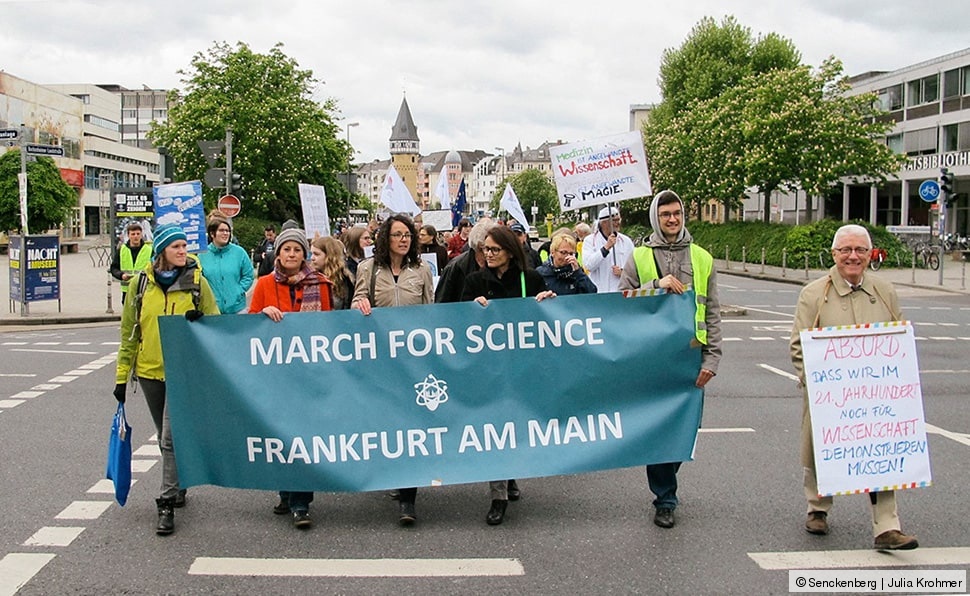Our Minister of State Dorn with Closing Remarks
Hessian Minister of State for Science and the Arts
Videopost to „Hochschulen als Quell der Nachhaltigkeit“
“Who, how, what – why, why and why? “Those who don’t ask stay dumb.” This motto, loosely adapted from a catchphrase repeated on Sesame Street, is one that we are all familiar with from our childhood and that we too pass down to our children. We take it as our springboard for discussion here and welcome this opportunity to speak with you, Minister of State Dorn.
Questions were put by Martina Klärle, Vice President of Frankfurt University of Applied Sciences.
In the first Black-Green legislative period in the Hessian State Parliament, you were the spokesperson for the Greens on climate protection, the environment and energy. Today, you are Minister of Science. And it is precisely the * Sustainability – University * interface that we would like to adopt as our focal point for this discussion.
WHO, then, among the 14 universities in Hesse, can lay claim to having the lowest CO₂ emissions in the three categories — per student, per staff and per square meter of floor area?
Now you’re fishing for compliments: I warmly congratulate Frankfurt UAS on its highly successful efforts in, among other things, transitioning to a renewable energy-based power supply and in significantly reducing its carbon emissions, where it earned first place. That said, the universities have altogether different starting conditions in terms of buildings, floor space use and mobility, not to mention different energy supply needs. Still, I’m very pleased to observe that all of Hesse’s universities are committed to working intensely and diligently to improve their carbon footprint.
If the sustainability genie were to grant you one last wish, HOW could we as Frankfurt UAS make your wish come true?
One of my heartfelt desires is assuredly to see a genuine turnaround in transport towards sustainable mobility. This wish cannot come true without many more new insights and innovative ideas, like those being developed at Frankfurt UAS. The recently founded PhD Center for Mobility and Logistics is impressive evidence of this.
WHAT is more important in the tradeoff in day-to-day business: sustainability or short-term cost savings?
Sustainability should be at the forefront of all decisions, of course – not only for reasons of climate and environmental protection but also because this is the only way to ensure that funds are well invested for the long term. For example, the federal state government decided many years ago to implement higher energy efficiency standards for buildings than required by law. This generates real money savings over the long haul. Accordingly, investment decisions are also based on life cycle cost considerations over a 30-year period. And the sustainable and fair procurement of products and services similarly plays an important role within the scope of Hesse’s sustainability strategy.
WHY do universities in particular play such a decisive part in their commitment to sustainability?
Universities frequently count among the largest institutions, and consequently also among the largest energy consumers in a particular region. By the mere act of putting their house in order and improving their energy efficiency, for example, they can make a substantial contribution to greater environmental sustainability. They also fulfill an important role model function as vital social institutions with a high degree of visibility. And, of course, they are particularly distinguished by the fact that they educate the decisionmakers of tomorrow, who will support and help to shape the social transformation process towards greater sustainability – and also researchers who develop the technical, economic, social and cultural innovations that we absolutely need in order to build a sustainable society.
WHY does the federal state government not require that sustainability in its social, economic and environmental dimensions be a compulsory component of all study programs?
Generally speaking, the design of academic instruction falls within the purview of university autonomy. And that’s just as it should be: It would be a major conceptual challenge indeed to meaningfully integrate a prescribed standard teaching module on sustainability into the entire spectrum of subject areas. Nor is this necessary because I’m pleased to note that the topic of sustainability in all its manifold and discipline-specific facets has already found its way into the curriculum of many study programs at Hesse’s universities. Particularly at universities of applied sciences, there is a wide range of study programs in diversified subject areas that also focus specifically on sustainability issues. Nevertheless, since we regard it as incumbent on universities to shoulder their social responsibility as well, we have stipulated in the Hessian Higher Education Pact 2021-2025 that all Hessian universities develop an individual sustainable strategy and thus anchor sustainability as a cross-cutting task in research, academic teaching and transfer of knowledge.
WHY are you so pleased that Frankfurt UAS in particular is the first of the 14 universities in Hesse to adopt a sustainability strategy in its senate?
The fact that Frankfurt UAS has already developed a comprehensive sustainability strategy is, of course, sensational. And what I find especially positive is that the strategy was developed in a broad participatory process involving many dedicated staff members at Frankfurt UAS – and that in spite of Corona. Such a strategy works only if everyone pulls together. I extend my heartfelt thanks to all those involved for their exceptional commitment!


